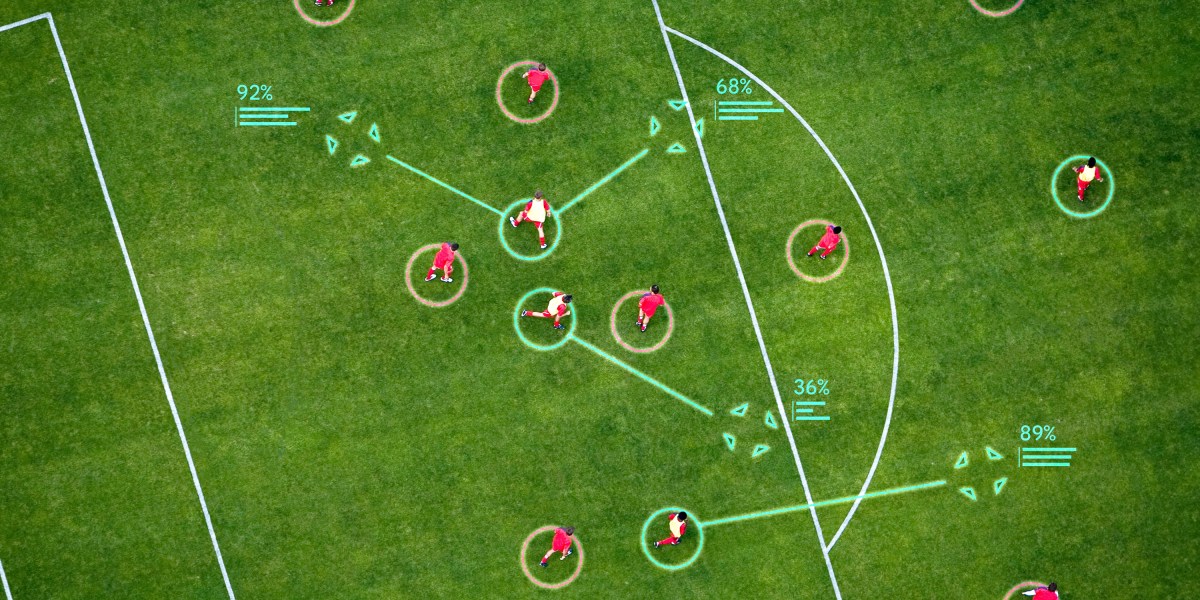
The main benefit is that the AI assistant reduces the workload of the coaches, says Ondřej Hubáček, an analyst at the sports data firm Ematiq who specializes in predictive models, and who did not work on the project. “An AI system can go through the data quickly and point out errors a team is making—I think that’s the added value you can get from AI assistants,” he says.
To assess TacticAI’s suggestions, GoogleDeepMind presented them to five football experts: three data scientists, one video analyst, and one coaching assistant, all of whom work at Liverpool FC. Not only did these experts struggle to distinguish’s TacticAI’s suggestions from real game play scenarios, they also favored the system’s strategies over existing tactics 90% of the time.
These findings suggest that TacticAI’s strategies could be useful for human coaches in real-life games, says Petar Veličković, a staff research scientist at GoogleDeepMind who worked on the project. “Top clubs are always searching for an edge, and I think our results indicate that techniques like these are likely going to become a part of modern football going forward,” he says.
TacticAI’s powers of prediction aren’t just limited to corner kicks either—the same method could be easily applied to other set pieces, general play throughout a match, or even other sports entirely, such as American football, hockey, or basketball, says Veličković.
“As long as there’s a team-based sport where you believe that modeling relationships between players will be useful and you have a source of data, it’s applicable,” he says.
